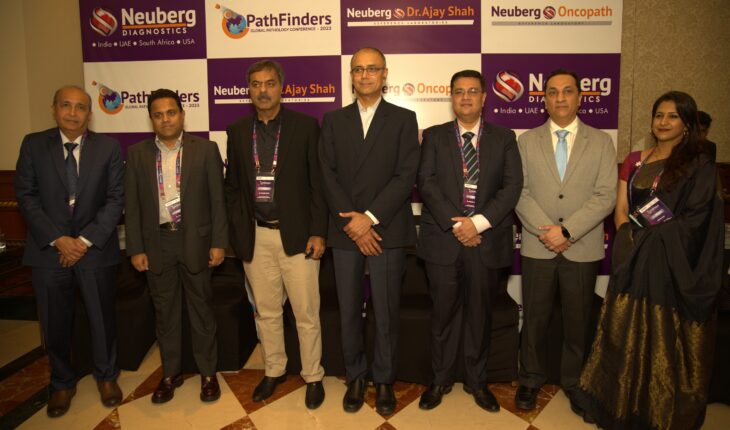Mumbai: By 2036, about 15% of the population is likely to be affected by ageing-related skeletal muscle loss and frailty, while COVID-19, cardiovascular diseases and ‘affected’ genes provide a “fertile” ground for research since the COVID virus affects the cells and membranes in the human body, according to Researchers.
This finding is part of the ever-growing science of pathology in the detection of human diseases and medical solutions, that was highlighted at a global conference on oncology, reproductive medicine data analytics/bioinformatics (proteomics) computational pathology, artificial intelligence, data science etc.
Professor Arvind Ramanathan, Faculty, Head Research, Institute for StemCell Science and Regenerative Medicine (InStem), Bangalore highlighted this detail while speaking on the “Emerging Science” about ‘Lipids in Human Diseases’ at the two-day Pathfinders Global Pathology Conference 2023 held in Mumbai recently.
Replying to questions, he said the solution lay in “denying the virus entry into the human resource,” while studies had shown that athletes often had a high fat layer in their muscles which was utilised well in their athletic efforts while also keeping away disease.
Describing lipids comprising 40,000 molecules as a ‘diverse class’ of compounds deeply associated with the human system’s physiology and health, he said the structural database revealed that 47,000 lipids have been discovered till date.
“Hundreds of ‘Triglycerides’ play important roles in disease detection of the spectrum of – even rare — disorders noticed today,” he said, adding “Lipids play an important role in identifying cardiovascular, cancer problems and mass-spectometry-based approaches help in identifying and quantifying such different lipids – even if they are lying hidden at a rate of 2-per-million.”
“Genomes contain more details than Proteins,” Dr Sridhar Sivasubbu, Senior Principal Scientist, CSIR: Institute of Genomics and Integrated Biology, New Delhi, said in answer to the question “Gene, RNA or Protein: what should one chase and when?”
“Fish are in the same genetic group like humans and the zebrafish was used by us in in research — where a student discovered bleeding in its brain that was then knocked down by molecular docking,” he said, adding that “Vascular Associated Endothilial RNA (VEAL2) was discovered and characterised high in BP patients.”
To a question why greater pathology efforts were not being put in post-COVID-19 about this disease and its gene-altering risks, Dr Sandip Shah, Executive Director, Neuberg Diagnostics, said the Institute of Genomic Studies of India and the Pune Institute of Viral Research have been given this permission by the Indian Government.
“COVID virus is a RNA virus entering the cell cycle and changing the protein production of the normal cell, where it affects the endothelial cells of the cardiovascular system by increasing coagulation or clot formation in the blood vessels,” he said, adding “That is the reason we find not only cardiovascular disease or heart attacks, but also paralytic strokes occurring after the COVID-19 pandemic and specifically after the +Delta+ virus came in.”
“The second COVID wave has created a lot of problems with the protein formation in the body. So, knowing that genetic sequence messenger RNA — and when it will come out – is necessary as it is having a coding for the protein formation and that change in the coding due to the virus has created a problem for the hypercoagulable state in which the blood vessels have been infected, resulting in clot formation and heart attack or strokes.”
“The research, study and publication by anyone on the COVID virus is controlled by the Government of India, which grants them the permission. Every Government globally does the same during an endemic or pandemic as the major responsibility lies on the Government. So, during such outbreaks, the Government of India springs into action to bring the disease under control through its relevant sources like Institute of Genomic Studies of India and the Pune Institute of Viral Research.”





